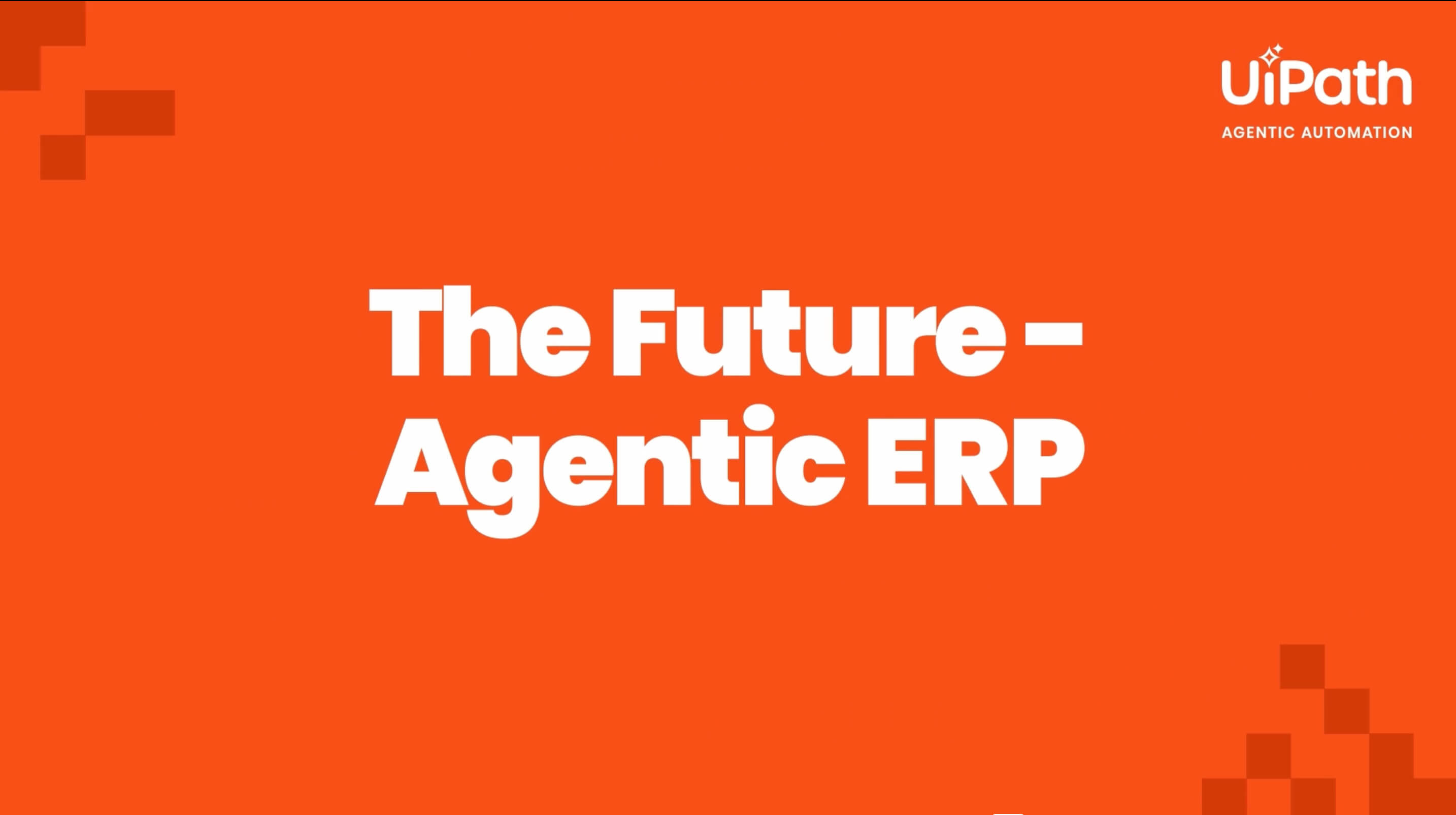Client:UiPath
Industry:High Tech
Region:Global
UiPath and Deloitte: revolutionizing ERP modernization—a blueprint for an agentic automation-led approach

85%+
of financial workflows, including billing, reconciliation, and revenue recognition, are now executed by unattended automations, drastically reducing manual effort.
93%
clean core SAP instance has significantly reduced long-term technical debt and simplified future upgrades, ensuring a foundation for agile growth.
60%
automated testing has freed up critical business resources, reduced risk for business stakeholders, and accelerated deployment.
10%
faster project delivery compared to traditional ERP rollouts, demonstrating enhanced efficiency.
Client Overview
UiPath (NYSE: PATH) is a global leader in agentic automation. The UiPath Platform™ for agentic automation enables enterprises to capture the vast new potential of autonomous AI agents, RPA robots, and people—enabling them to work together to automate complex business processes end to end.
Partner

In today's fast-paced business landscape, enterprises are constantly seeking ways to enhance agility, streamline operations, and prepare for future growth. UiPath, a leader in agentic automation, collaborated with Deloitte Consulting, LLP to redefine Enterprise Resource Planning (ERP) transformation. Our goal was to showcase how an automation-first, agentic approach to SAP S/4HANA can serve as a blueprint for every organization facing the inevitable challenge of ERP modernization.
Crucially, we realized these achievements with significantly less disruption, fewer business hours consumed, and a dramatically reduced reliance on custom code and one-off integrations. We also developed a reusable automation playbook that captured methodologies and automation assets to guide other enterprises.
The challenge: outgrowing the old playbook
Following its IPO and rapid global growth, UiPath quickly outgrew the capabilities of its legacy Enterprise Resource Planning (ERP) system. We faced mounting operational challenges—ranging from manual billing cycles and revenue recognition delays to siloed reporting and limited scalability. Complex, non-standard deals required frequent manual interventions, increasing the risk of human error and audit concerns. Multi-GAAP reporting processes were time-consuming and labor-intensive, slowing the financial close and limiting agility.

Recognizing the need for a modern, integrated ERP platform that could scale, UiPath selected SAP S/4HANA. But rather than taking a traditional route, we chose to reimagine the entire transformation process with a bold goal: to pioneer an automation-first, agentic ERP approach that would become a model for the market.
We knew we needed more than just a new ERP—we needed a new way to deliver ERP. This meant building automation into every layer of implementation and operations, and pushing the limits of what’s possible with SAP when combined with our own technology.
Mihai Faur, UiPath CIO
The strategy: automation-led by design
To bring this vision to life, UiPath worked jointly with Deloitte Consulting, LLP, a leader in SAP business transformation. Together, we launched the “Customer Zero” initiative—the UiPath internal migration to SAP S/4HANA, designed as both a transformation program and an indisputable proof-of-concept for the market.
Our approach emphasized two key principles: adopt a clean-core SAP strategy by minimizing customizations, and use automation wherever possible to solve business gaps. Instead of customizing SAP for non-standard requirements, UiPath leveraged the power of our entire platform to streamline data migration, integrate with systems like Workday and Salesforce, and reduce manual intervention. More than 200 automations were delivered across core processes like quote to cash (Q2C), Treasury, and record to report (R2R).
Testing, often one of the most burdensome phases in ERP implementation, was transformed through the use of UiPath Test Cloud. Nearly 60% of test cases were automated, significantly reducing the load on business users and accelerating delivery timelines. Deloitte also embedded UiPath automation into its Ascend™ methodology to drive delivery speed and consistency.
We began the project with a question: Could automation minimize or eliminate the need for customization of the ERP platform? What we achieved not only answered that question—it redefined our standards.
Hitesh Ramani, UiPath Chief Accounting Officer and Deputy CFO
“With Customer Zero, we weren’t just implementing SAP—we were reinventing how SAP projects are delivered,” added Aditi Gupta, SAP & AI Leader at Deloitte Consulting, LLP. “By layering automation into every phase and using UiPath agentic capabilities, we’ve fundamentally changed the ERP playbook.”
The results: a new standard for ERP success
The impact of the Customer Zero initiative was substantial. UiPath achieved a 93% clean core—a remarkable achievement compared to the industry standard of 80%. This minimized long-term technical debt and created a foundation for agile upgrades and future scalability. Automation replaced manual effort in financial processes such as billing, revenue recognition, and account reconciliation, with over 85% of those workflows now handled by unattended robots.
Automation accelerated project delivery by an estimated 10%, while test automation freed up critical business resources, reducing the time and effort needed for deployment. In addition, a reusable Automation Playbook was developed that captured methodologies, governance models, and automation assets that can be applied to help other enterprises pursue similar automation-led transformations.
“Our goal wasn’t just to modernize our own ERP system—we wanted to shape how others approach theirs,” said Mihai Faur. “This is about leading by example, proving the value of an automation-first design, and showing what’s possible when you marry intelligent, agentic automation with SAP.”
What comes next: the era of agentic ERP
Following our first and second live releases, UiPath is now focused on the next phase: embedding more agentic AI capabilities into our ERP environment. This vision, known as Agentic ERP, powered by the UiPath Platform for agentic automation, will enable smart AI agents to proactively drive enterprise operations—handling decision-making, identifying exceptions, and orchestrating tasks across SAP and non-SAP applications, engaging humans only when needed.
Agentic ERP—where humans lead, but agents execute and automate complex workflows—is the future of intelligent enterprise operations.
This is Act Two of our transformation. Our vision is a system that works for people, not the other way around.
Mihai Faur, UiPath CIO
A model for every enterprise
The transformation of UiPath Finance is more than an internal success; it’s a blueprint for the future of ERP modernization and a model for the market. The lessons from Customer Zero are clear for any enterprise, whether a high-growth scaleup or an established organization facing ERP end-of-life:
You don’t need to trade agility for compliance
You can modernize without excessive customization
Automation isn’t a bolt-on—it’s the foundational layer for true transformation
With Deloitte Consulting, LLP as a strategic advisor, UiPath has unequivocally proven that an automation-led, agentic approach can reduce risk, increase agility, and deliver business value faster. Not only that, but our Automation Playbook can also guide customers across industries as they embark on their own journeys towards an autonomous finance function and a more agile enterprise.
Related case studies
Ready for your own case study?
Speak to our team of knowledgeable experts and learn how you can benefit from agentic automation.






